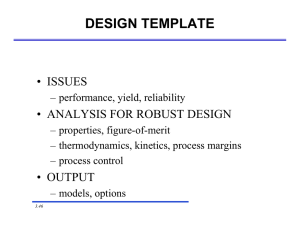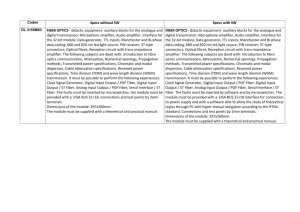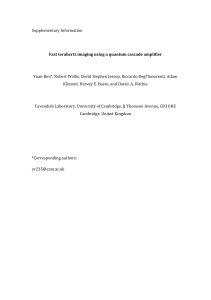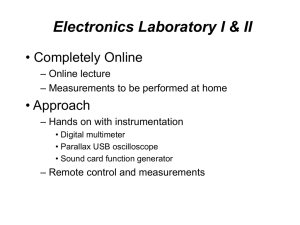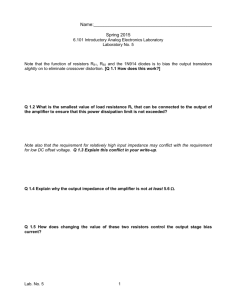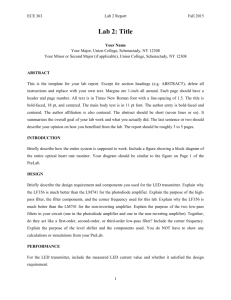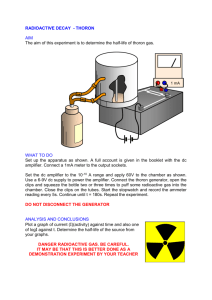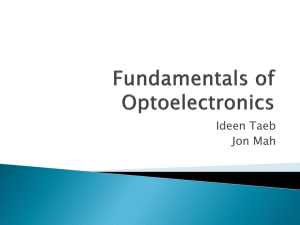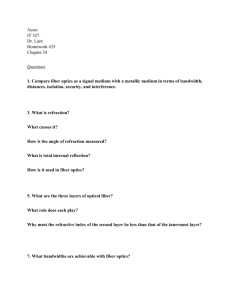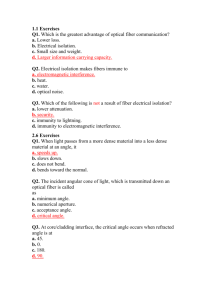Homework 10 - Sonoma State University
advertisement
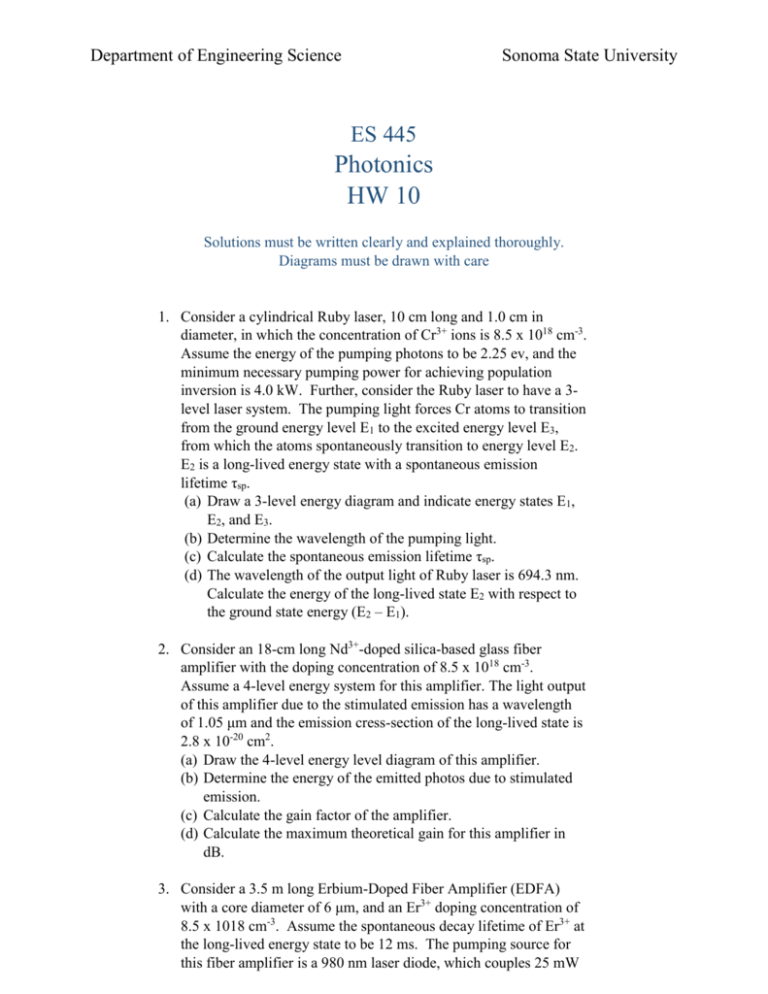
Department of Engineering Science Sonoma State University ES 445 Photonics HW 10 Solutions must be written clearly and explained thoroughly. Diagrams must be drawn with care 1. Consider a cylindrical Ruby laser, 10 cm long and 1.0 cm in diameter, in which the concentration of Cr3+ ions is 8.5 x 1018 cm-3. Assume the energy of the pumping photons to be 2.25 ev, and the minimum necessary pumping power for achieving population inversion is 4.0 kW. Further, consider the Ruby laser to have a 3level laser system. The pumping light forces Cr atoms to transition from the ground energy level E1 to the excited energy level E3, from which the atoms spontaneously transition to energy level E2. E2 is a long-lived energy state with a spontaneous emission lifetime τsp. (a) Draw a 3-level energy diagram and indicate energy states E1, E2, and E3. (b) Determine the wavelength of the pumping light. (c) Calculate the spontaneous emission lifetime τsp. (d) The wavelength of the output light of Ruby laser is 694.3 nm. Calculate the energy of the long-lived state E2 with respect to the ground state energy (E2 – E1). 2. Consider an 18-cm long Nd3+-doped silica-based glass fiber amplifier with the doping concentration of 8.5 x 1018 cm-3. Assume a 4-level energy system for this amplifier. The light output of this amplifier due to the stimulated emission has a wavelength of 1.05 μm and the emission cress-section of the long-lived state is 2.8 x 10-20 cm2. (a) Draw the 4-level energy level diagram of this amplifier. (b) Determine the energy of the emitted photos due to stimulated emission. (c) Calculate the gain factor of the amplifier. (d) Calculate the maximum theoretical gain for this amplifier in dB. 3. Consider a 3.5 m long Erbium-Doped Fiber Amplifier (EDFA) with a core diameter of 6 μm, and an Er3+ doping concentration of 8.5 x 1018 cm-3. Assume the spontaneous decay lifetime of Er3+ at the long-lived energy state to be 12 ms. The pumping source for this fiber amplifier is a 980 nm laser diode, which couples 25 mW Department of Engineering Science Sonoma State University of optical power into the fiber. Assume that the maximum fiber length beyond which the gain is lost rapidly (Lp) is 4.0 m. Assume the emission cross-section to be 3.2 x 10-21 cm2 and the absorption cross-section to be 2.4 x 10-21 cm2. Calculate: (a) The confinement factor for this fiber amplifier. This is the percentage of the light pumped into the fiber which confined within the fiber. (b) The gain in dB for full population inversion. (c) The gain in dB for 85% population inversion.
